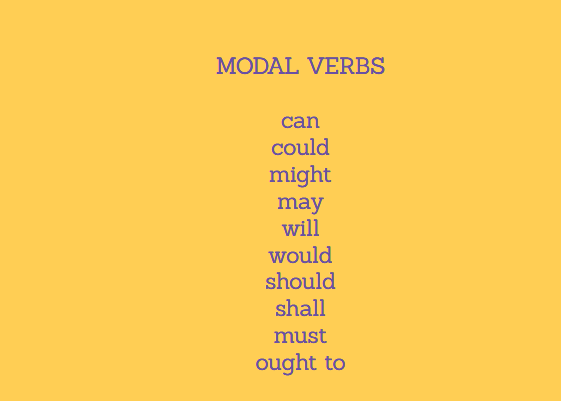What is a verb?
A verb is usually an action.
So for example:
‘go’, ‘buy’, ‘eat’, ‘write’ all of these are verbs.
Verbs can also be something which is not an action but a state or a state of being, such as be (and its forms such as ‘am’, ‘are’, ‘is’ and ‘was’, ‘were’), ‘exist’ are not actions but are still verbs, though most verbs are actions.
English verb tree
One of the reasons why English is easier than some other languages is that in English the verb does not change for the person, for example you would say ‘I went’ and ‘You went’. However in Spanish, ‘I went’ would be ‘yo (I) fui (went)’ that is ‘yo fui’, but ‘you went’ would be ‘tu (you) fuiste (went).
So in Spanish ‘went’ for I would be ‘fui’ and for you would be ‘fuiste’, whereas in English it always stays the same.
There are four forms of the verb in English.
- Infinitive: The infinitive is ‘to do’, or ‘to go’. Without the word ‘to’ it is called the ‘bare infinitive’. It is also called the root form or stem or base form. For example ‘I go to school every day’.
- The past simple is the form of the verb used in the past. For example ‘I went to school yesterday.’
- The present participle is the form of the verb used in continuous tenses when something is happening at a certain time e.g. ‘I am going to school now.’ or ‘I will be going to school tomorrow morning.’ The present participle always ends in ‘...ing‘. Because you just add ‘ing’ to the original form of the verb and it is easy, it is often not mentioned in grammar books.
- The past participle is the form of the verb which is used in sentences such as ‘I have gone.’ or ‘I have spoken to him.’ It is also used in passives. The ‘past participle’ is used in both the past perfect and present perfect tenses, so watch the following two videos to understand what they are:https://www.youtube.com/watch?v=sun7z4Ca3_8&t=3s&ab_channel=EnglishMadeSimpleand
https://www.youtube.com/watch?v=JkhiJprhbq0&ab_channel=EnglishMadeSimpleLook at this diagram, the ‘verb tree’.
So the infinitives are ‘go’, ‘eat’, ‘take’ and their past simple forms are ‘went’, ‘ate’, ‘took’.
The present participle form is easy because you just add an ‘…ing’ so they are ‘going’, ‘eating’ and ‘taking’.
The past participle forms are ‘gone’, ‘eaten’, ‘taken’.
Auxiliary verbs
In addition to normal verbs that provide us with information on what someone or something is doing there are also ‘auxiliary verbs’ (click on this link to read an article about auxiliary verbs or ‘helping verbs’).
Look at these two sentences to understand what a helping verb is and what a main verb is.
‘Do you…?’

“Do you…?”. Do you, what?
The sentence by itself has no meaning. ‘Do’ here however is a verb.
Now let’s look at this sentence.
“… you drive?”

This sentence is not correct either. The grammar is wrong. However it does have some meaning. We know the sentence is about whether you can drive or not. It is more useful than the first sentence and has some meaning.
The correct form of this sentence would be:
‘Do you drive?’

‘Drive’ is a verb.
‘Do’ is a verb.
Which of these is more important?
Drive, because ‘Do you…?’ by itself has no real meaning and we don’t learn anything.
‘Drive’ is the more important verb and is called ‘the main verb’.
‘Do’ is only there to help the main verb and is called an ‘auxilary verb’ or ‘helping verb’.
The three main auxiliary verbs are ‘BE’, ‘DO’ and ‘HAVE’ and they change depending on the time and person you are speaking about.
The various forms of ‘BE’ are ‘am’, ‘are’, ‘is’ for the present and ‘was’, ‘were’ for the past.
So we cannot say ‘I is a student’, we must say ‘I am a student.’
Modal Verbs
In addition to the auxiliary verbs there are the ‘modal auxiliary verbs’ which are:
- can
- could
- might
- may
- will
- would
- shall
- should
- must
- ought to
Unlike the ‘auxiliary verbs’ (be, do and have) the modal auxiliary verbs which are usually just called ‘modal verbs’ do not change and stay the same. Like auxiliary verbs they need a main verb to make some sense. ‘I can’ by itself does not mean much (unless it’s an answer) but if you say ‘I can cook’, then the sentence has meaning. ‘Cook’ is the main verb there because it provides the main information.

Here are examples for each of these modal verbs, with the main verbs in bold..
‘I can help you’.
‘ I could see him in the park yesterday’.
‘I might go tomorrow, I’m not sure’.
‘I may come with you, I will let you know later.’
‘I will speak to the teacher this afternoon’
‘Would you open the window please?’
‘I think you should do more homework.’
‘I must speak to my manager’.
‘I think you ought to eat more fruits.’
There’s much more information about verbs but this is an introduction, feel free to ask questions in the comments section!


